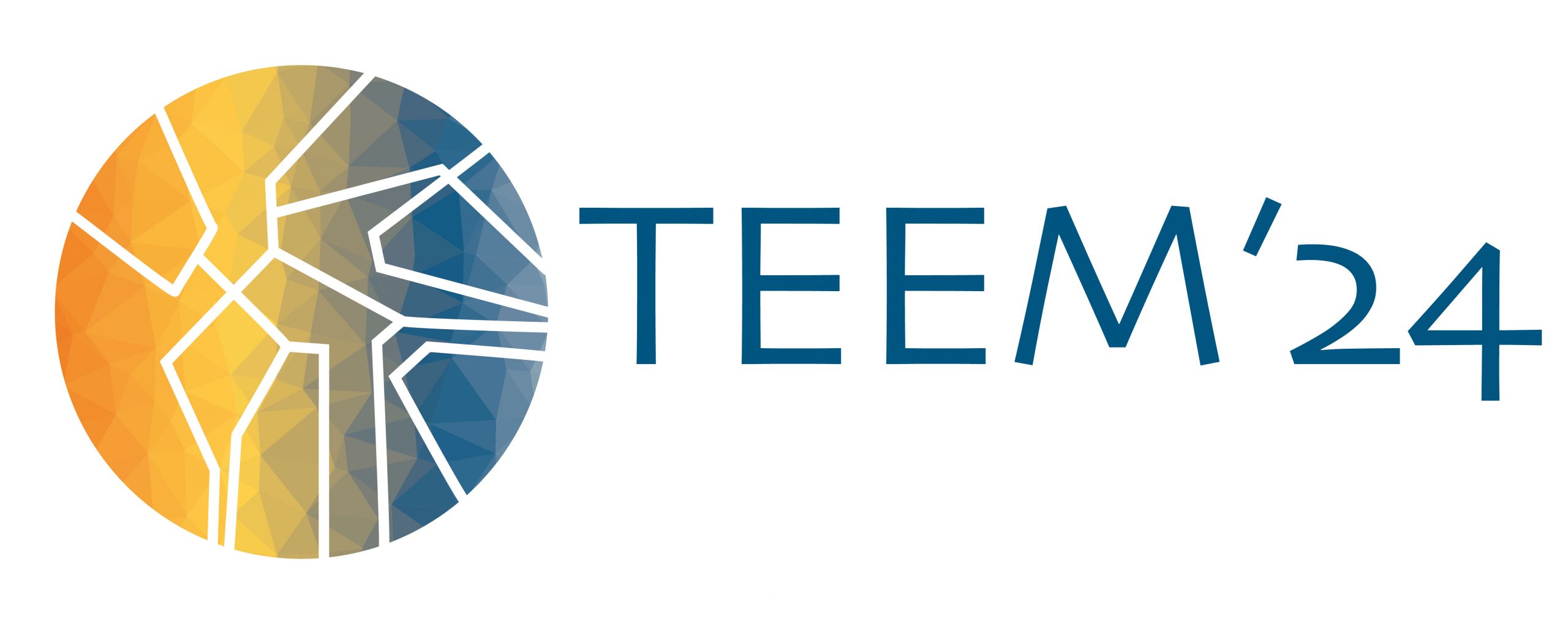Track 13. Educational Innovation
“Educational Innovation” explores the dynamic intersection of technology and education, delving into the ways in which digital tools, innovative teaching practices, and comprehensive systems are revolutionizing how we teach, learn, and interact. This track is tailored for educators, technologists, policymakers, and all stakeholders passionate about harnessing the power of technology to create more inclusive, effective, and
engaging educational environments. By participating in the “Educational Innovation” track, attendees will gain insights into cutting-edge technologies and methodologies that are setting new standards in educational excellence. This track offers a unique opportunity to network with like-minded professionals, share best practices, and explore collaborative solutions to the challenges of modernizing education in a multicultural world. Whether you are an educator looking to enhance your teaching methods, a technologist exploring educational applications, or a policymaker focused on educational reform, the “Educational Innovation” track offers valuable knowledge and connections. Planning, adaptation, exchange of ideas and collaboration will be part of the essence of this track.
Topics
This track aims to showcase the results of applying technologies and methodologies that address real needs in any educational context and knowledge area, in the following topics:
- Active and Collaborative Methodologies
- Adaptive Learning with Technologies
- Digital Competences
- Digital Transformation
- Educational Innovation Management
- Educational Tools
- Educational Trends
- Knowledge Management Systems in Education
- New Methodologies and Technologies for face to face, distance and blended learning
- Open Learning
Track Scientific Committee
Alberto Real-Fernández, Universidad de Alicante, Spain
Alicia García Holgado, Universidad de Salamanca, Spain
Álvaro Luis Rojas Zamorano, Universidad Tecnológica Metropolitana, Chile
Carol Rivero Panaqué, Pontificia Universidad Católica del Perú, Peru
Daniel Amo Filvà, La Salle – Universitat Ramon Llull, Spain
Edith Soria Valencia, Pontificia Universidad Católica del Perú, Peru
Faraón Llorens Largo, Universidad de Alicante, Spain
Fernando Moreira, Universidade Portucalense, Oporto, Portugal
Francisco José Gallego Durán, Universidad de Alicante, Spain
Francisco José García Peñalvo, Universidad de Salamanca, Spain
Jorge Joo Nagata, Universidad Metropolitana de Ciencias de la Educación, Chile
José Luis Martín Núñez, Universidad Politécnica de Madrid, Spain
Josep Petchamé, La Salle – Universitat Ramon Llull, Spain
Laura García Ruesgas, Universidad de Sevilla, Spain
Margarida Lucas, Universidade de Aveiro, Portugal
María Amparo Verdú Vázquez, Universidad Politécnica de Madrid, Spain
María Sánchez Canales, Universidad Politécnica de Madrid, Spain
María Soledad Ramírez Montoya, Tecnológico de Monterrey, Mexico
Miguel Ángel Conde-González, Universidad de León, Spain
Miguel Hernández, Universidad Católica de Valencia, Spain
Patricia Compañ Rosique, Universidad de Alicante, Spain
Ricardo Castedo, Universidad Politécnica de Madrid, Spain
Rosana Satorre Cuerda, Universidad de Alicante, Spain
Susana Sastre Merino, Universidad Politécnica de Madrid, Spain
CHAIRS:

Mª Luisa Sein-Echaluce
President of Scientific Committee of CINAIC (www.cinaic.net), Universidad de Zaragoza, Spain

Ángel Fidalgo-Blanco
President of Organization Committee of CINAIC (www.cinaic.net)
LITI (Laboratory of Innovation in Information Technologies), Universidad Politécnica de Madrid (UPM), Spain

Ana María Balbin Bastidas
Academic Department of Education, Pontificia Universidad Católica del Perú, Peru

David Fonseca Escudero
Full Professor of Human Environment Research Group, Technology Enhanced Learning Line (HER-TEL)
La Salle, Universitat Ramon Llull (URL), Barcelona, Spain
